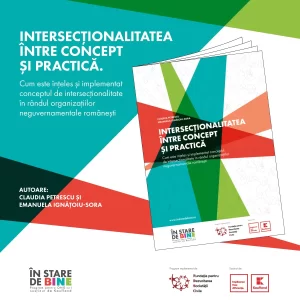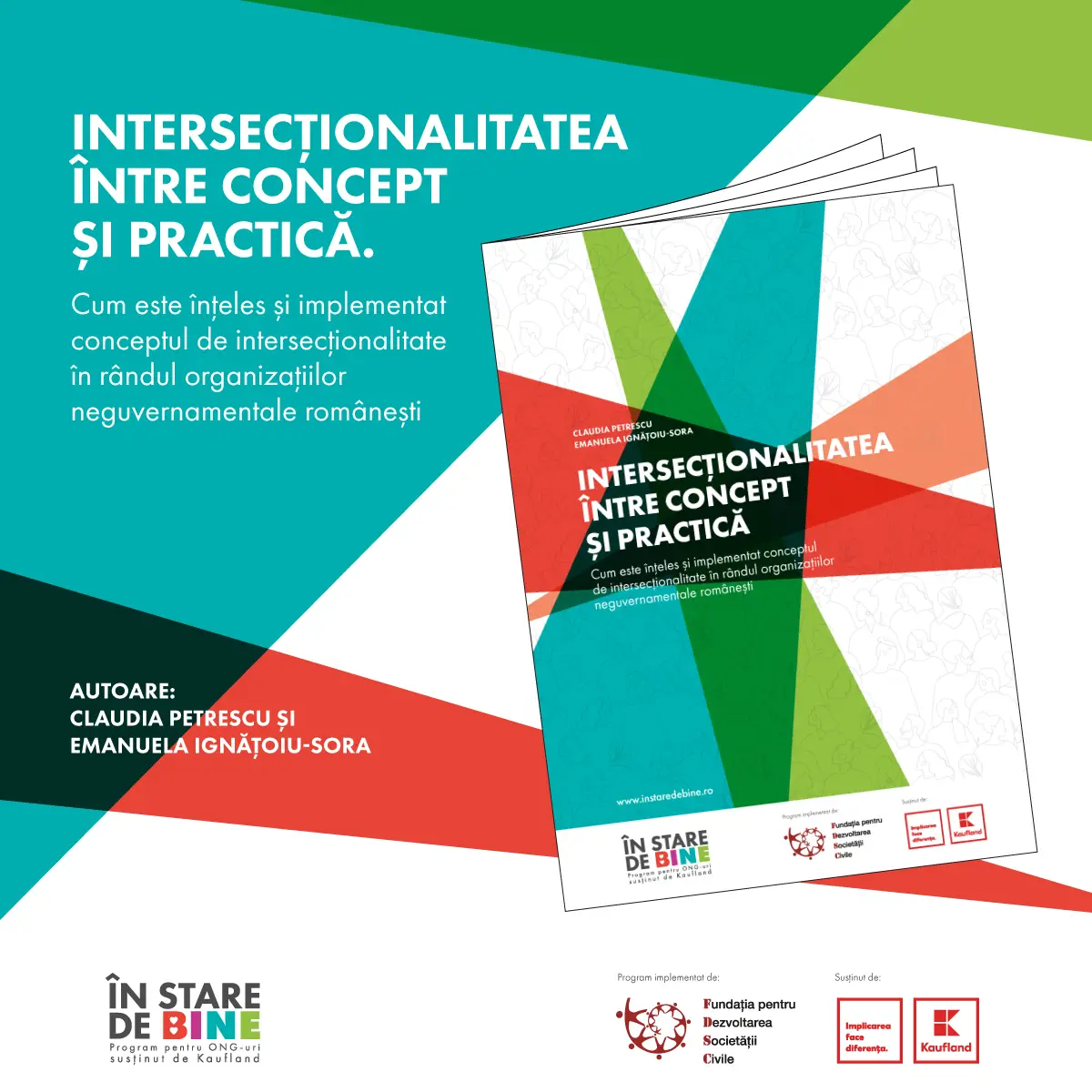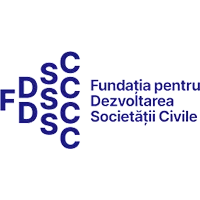Launch of the study “Intersectionality in Romania” – An essential perspective on discrimination

The Civil Society Development Foundation is excited to announce the launch of a new study fundamental to understanding discrimination in Romania. Under the umbrella of the #InStareDeDeBine program, supported by Kaufland Romania, the research entitled “Intersectionality between concept and practice. How the concept of intersectionality is understood and implemented among Romanian non-governmental organizations“.
The study, by Claudia Petrescu and Emanuela Ignatoiu-Sora, is the first large-scale national study to explore intersectionality and provides a detailed picture of how Romanians face discrimination based on a number of factors, such as age, income, occupation and gender.
What Is Intersectionality?
The concept of intersectionality refers to the intersection and overlapping of multiple forms of discrimination and inequality, such as those based on gender, race, class, sexual orientation or other characteristics. This approach emphasizes that individuals are not affected by just one form of oppression, but by a combination of them, generating multiple vulnerabilities.
Study Findings
The study brings to the fore essential data on how discrimination is perceived and experienced in Romania, providing a solid basis for future actions and strategies to combat this phenomenon. Here are some of the relevant findings:
- One in seven Romanians reported having been the victim of at least one instance of discrimination, either at work, during a job interview or at school.
- 25% of Romanians said they felt discriminated against on the basis of age.
- The most common context in which discrimination occurs is job interviews (14%), followed by the workplace (13%) and educational background (13%).
- Age (23%), income (18%), occupation (14%) and gender (13%) are the main reasons for discrimination.
Impact of the Study
The research highlights the major challenges both Romanians and non-governmental organizations face in combating discrimination and social vulnerabilities. In this sense, the study becomes an essential tool for all those working in the field of human rights and equal opportunities, providing concrete and relevant data on the realities of discrimination in Romania.
The study emphasizes the importance of an intersectional approach in the formulation of public policies and in projects implemented by NGOs in order to combat inequalities and provide adequate support to the most vulnerable social groups.
Read the full study
To explore the findings and recommendations of this landmark study in more detail, access the full document here and find out more about the complexity of discrimination in Romania and the steps needed to combat it effectively.
#InStareDeBine #InvolvementMakesDifference #KauflandRomania #FDSC
Stay up to date with CSDF’s activities!
30 years of CSDF
30 years of CSDF
30 years of CSDF
30 years of CSDF
30 years of CSDF
© 2026 Civil Society Development Foundation. All rights reserved.



